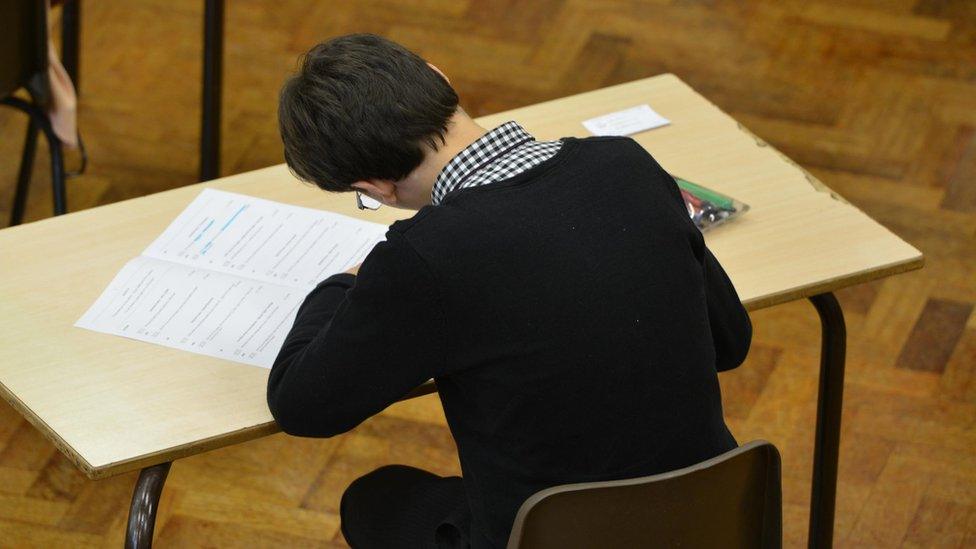GCSE and A-levels: Children's watchdog 'furious' about 'over-testing'
- Published
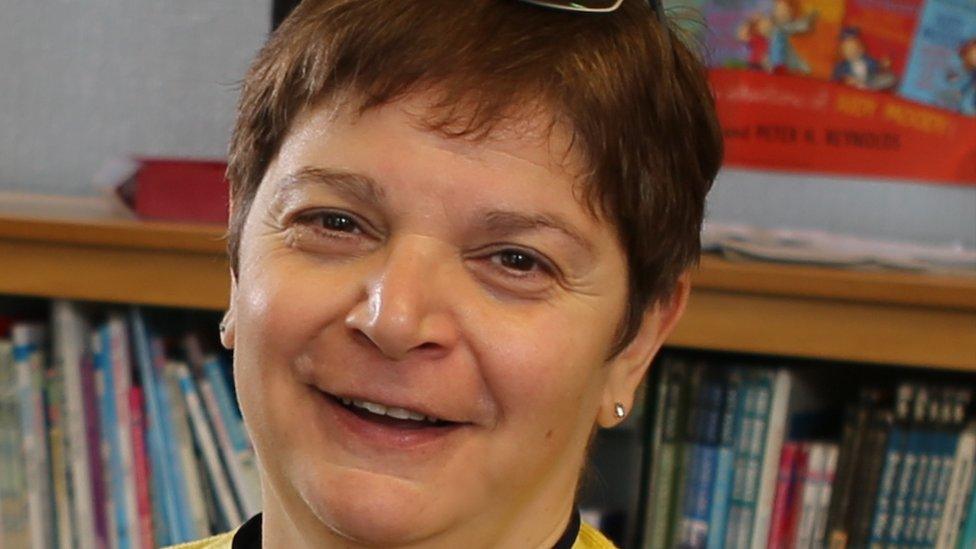
Koulla Yiasouma said some schools had been less flexible than others in relation to assessments
Northern Ireland's children's commissioner has said she is furious at the approach taken by some schools to assess grades for GCSE, AS and A-level students.
Koulla Yiasouma said she was disappointed by "the overuse of controlled assessments in test conditions" reported to her office.
Summer exams have been cancelled this year due to the Covid-19 crisis.
But many schools are using assessments to help determine final grades.
This follows advice from examination board CCEA.
The commissioner said the challenges faced by teenagers undergoing these assessments after a three-month lockdown should not be underestimated.
Some schools are using three assessments per subject, which means GCSE students could have up to 30 controlled assessments, she added.
The commissioner had urged the education minister to cancel exams in November because of the continuous pressure of assessments on teenagers due to the uncertainty of the pandemic.
"For some young people these assessments began after Easter and many have come to us to say they are doing three controlled assessment resources per subject," she said.
"They have missed nine months of education. I don't question the motivation of schools that want to do what is best for their young people but some have not been as flexible as I would have expected.
"I am furious, but the resilience these young people have shown is extraordinary. I am in awe of these children."
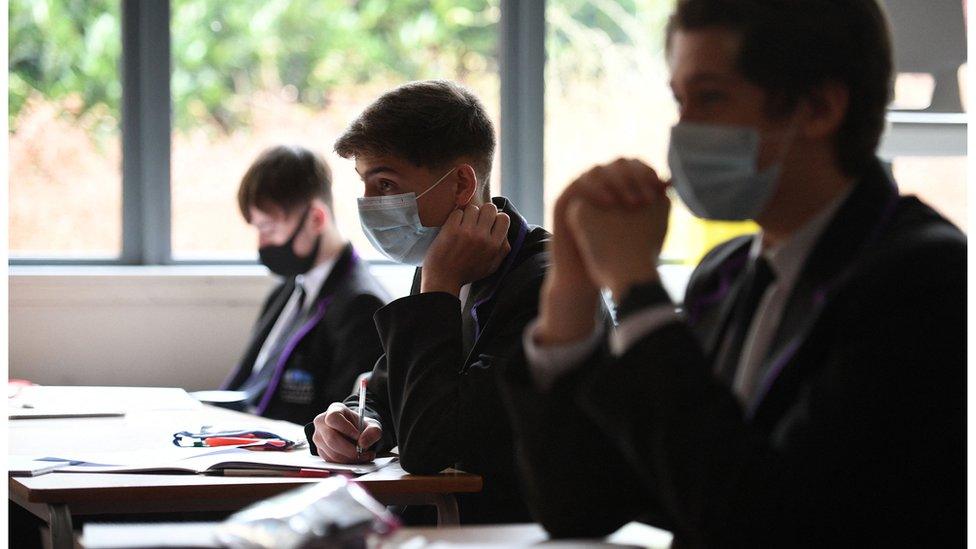

'Schools guidance'
CCEA has provided schools with optional test papers, which include question papers and mark schemes, that may be used as evidence for grades.
Schools have been advised, though, that at least one assessment resource should be used per qualification under "high control conditions" where possible.
CCEA advises that these question papers should be stored securely but "are not to be seen as high stakes assessments but rather viewed as materials which could form part of the evidence used to inform Centre Determined Grades".
The assessment resources will be marked by teachers.
Other evidence that may be submitted to determine grades includes coursework, previous class assessments and class work.

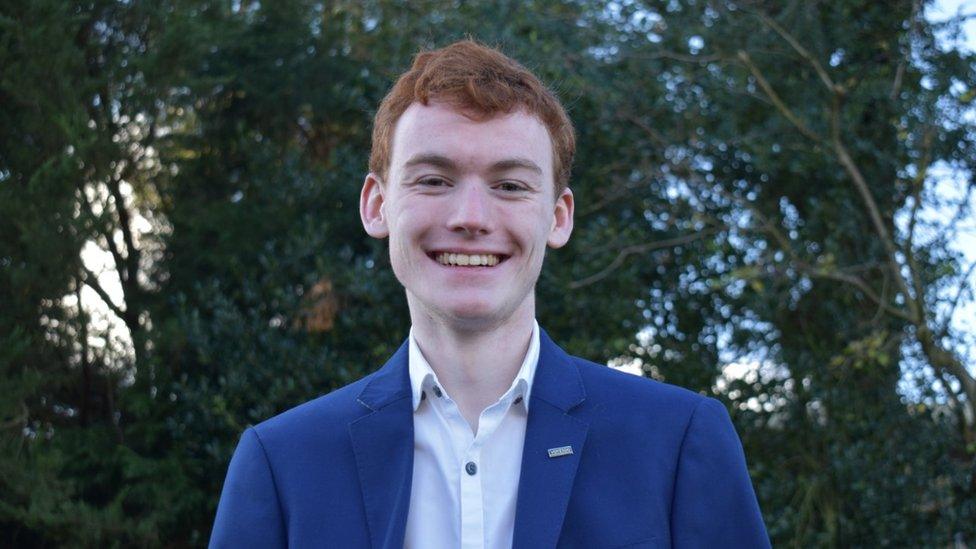
Cormac Savage said students feel "duped" by assessment tests
President of the Secondary Students' Union of NI and A-level pupil Cormac Savage said GCSE and A-level students felt "duped" to learn work done during lockdown may not count towards their final results.
He said they had been "failed" once again after the controversy with the grades algorithm in 2020.
Cormac said controlled assessments were having an "immense" negative mental health impact on some pupils, some of whom, he said, were taking up to 30 assessment tests.
He added that students had been "breaking their backs" to achieve good grades while schools were closed, believing exams had been cancelled.
"We were told by the minister for education to work really hard over lockdown and were given the impression the work we were doing would be used to predict our grades," he said.
Both CCEA and the Department of Education have highlighted that the assessment resources are "optional" with flexibility in how evidence is gathered.
CCEA said there was "no pressure or requirement from CCEA to complete any particular form of assessment".
"CCEA has provided resources to help teachers gather evidence to reach their centre determined grades," it said in a statement.
"However, schools have complete flexibility to use other evidence that they consider is most appropriate for their context."
The Department for Education said there was no requirement for all learners to take multiple assessments in every subject.
"Where a school chooses to use the assessment resources, these can be adapted to provide learners with an opportunity to demonstrate their knowledge, skills and understanding in relation to what they have been taught," said a spokesperson.
'Upset about the stress'
AS-level student Niamh Carroll said she believed the disparity in approach between schools was "deeply unfair".
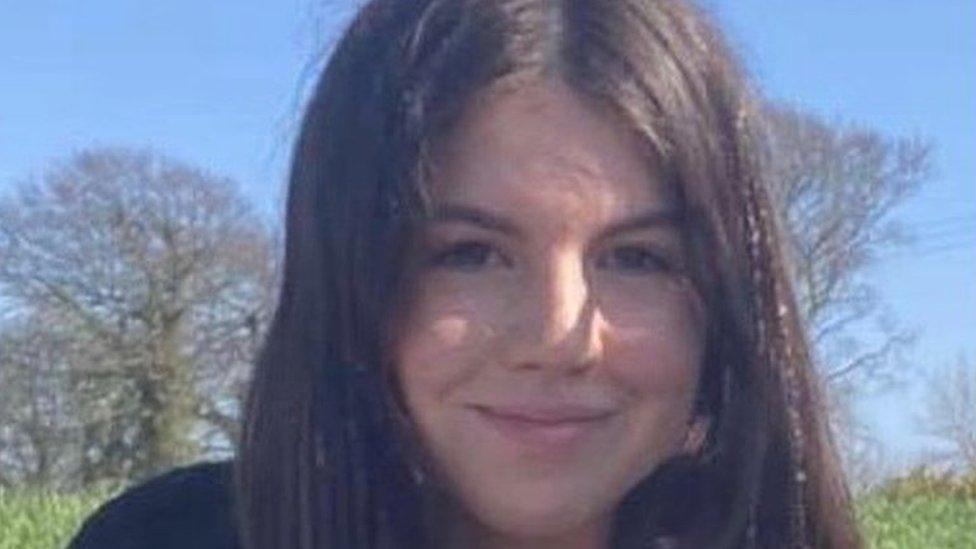
Niamh Carroll says some schools were asking students to sit assessments at short notice
"I am doing far more exams that I had expected and my social media feed is full of young people upset about the stress they are under because of this," she said.
"Some students are being given much more time than others to prepare. Every school seems to be using different levels of examination. Is it equitable?
"I am afraid this is going to affect my chance of getting into university but the worst thing is there is nothing I can do about it."
AS-level student Morgan Shuttleworth said he underwent a lengthy assessment within days of returning to school after months of home-schooling.
"Exam stress is normal but this uncertainty is causing students massive anxiety," he said, adding that students felt "pushed to their limits".
"It doesn't matter how many qualifications you have, if your mental health is poor that's a bigger issue".
"Lockdown was hard enough, sitting exams in the first week back was insane."
'Exams in all but name'
Several parents spoken to BBC News NI about their concerns over the current assessments.
One parent, who asked not to be named, said the GCSE assessments their teenager had to do were examinations in "everything but name".
"As if children haven't been put through enough, now schools are doing more tests than if they had been allowed to do GCSEs."
Another parent said their child, an A-level student, had been extremely stressed to be asked to sit six "exams" on the return to school following the three-month lockdown.
"Despite promises from our education minster of no exams, schools, fuelled by awarding boards like CCEA, are pushing our young people in what they are calling 'assessments' which are exams by another name.
"This needs to be taken more seriously.
"Why is the primary focus of our schools on assessment rather than teaching after more than three months of not being in school?"
Not all students are unhappy with the assessment process.
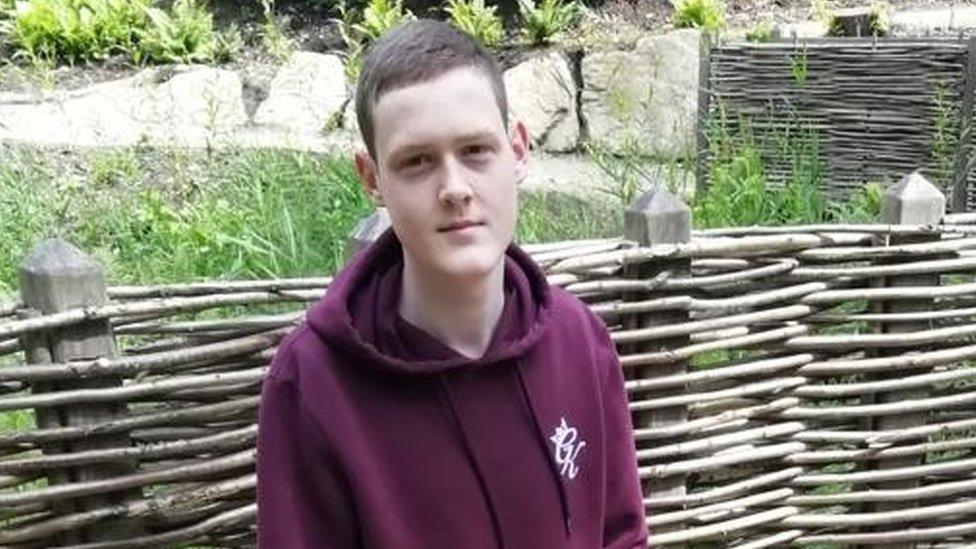
Enda Clarke says he is more than happy not to have to sit his GCSE exam
GCSE student Enda Clarke said he was happy about the cancellation of exams despite the work put into preparation.
He said he felt like he had been "on holiday" for the past year.
"It felt pretty good, I think overall we're getting it quite easy."
Related topics
- Published10 February 2021
